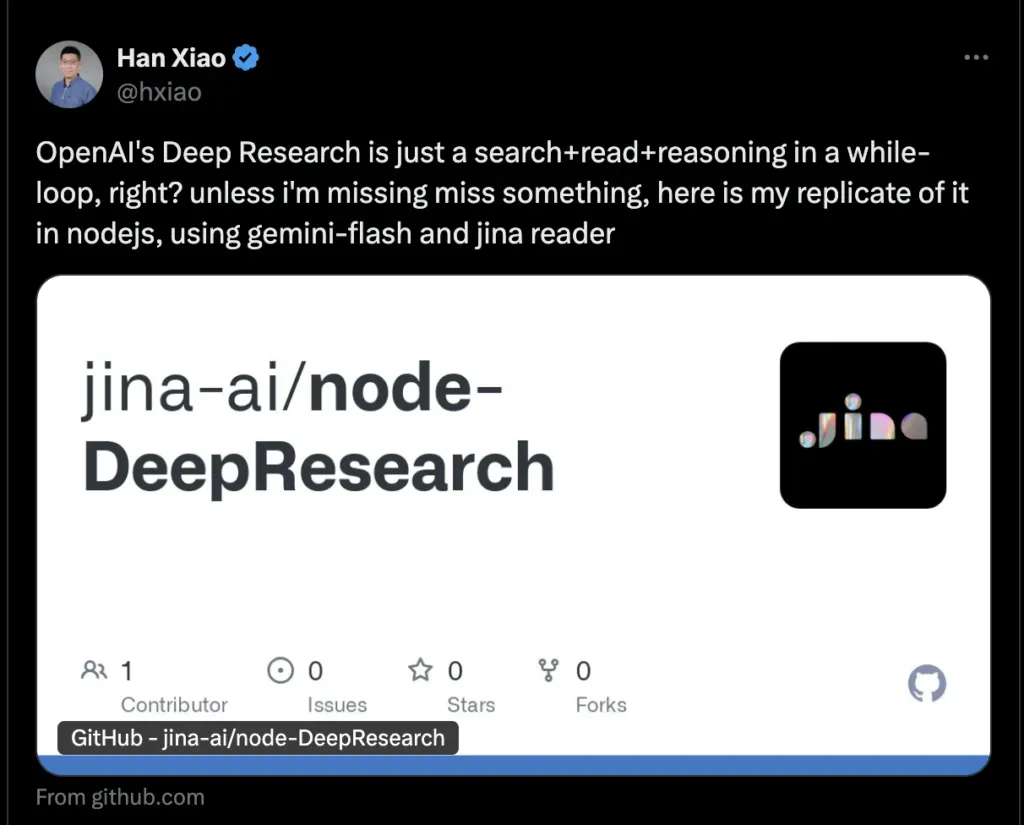The recent Nvidia market value drop has sent shockwaves through the tech industry, erasing nearly $600 billion in value following a Chinese company’s announcement of a $5.6 million AI breakthrough. This unexpected turn of events has sparked concerns about the future of AI technology, particularly amidst growing competition from companies like Huawei, which are aggressively pushing into the AI chip market. Investors had previously placed their bets on Nvidia, anticipating the company’s continued dominance fueled by the soaring demand for AI processors. However, the sudden decline in Nvidia’s stock has raised questions about the sustainability of such confidence, especially in light of DeepSeek’s innovative advancements in AI capabilities. As Wall Street grapples with this unsettling shift, industry experts are divided on whether this decline is a temporary overreaction or a sign of deeper issues affecting Nvidia’s market position.
The significant decline in Nvidia’s stock value reflects a broader anxiety gripping the technology sector as companies like DeepSeek emerge with disruptive AI innovations. This situation highlights the fierce competition Nvidia faces, particularly from rivals such as Huawei, which are quickly adapting to capitalize on the growing AI chip market. The dramatic reduction in Nvidia’s market capitalization underscores the volatility in tech investments as investor sentiment shifts in response to new developments in artificial intelligence. As the landscape evolves, the implications of these changes may redefine how tech giants strategize their AI initiatives and partnerships. In this rapidly changing environment, understanding the interplay between AI technology advancements and market confidence is crucial for stakeholders.
The Impact of DeepSeek AI Breakthrough on Nvidia’s Market Value
The recent announcement from Chinese tech company DeepSeek regarding its $5.6 million AI breakthrough sent shockwaves through the stock market, resulting in a staggering loss of nearly $600 billion in Nvidia’s market value. This sudden drop raised concerns about the sustainability of AI investments within the technology sector, particularly as investors began to question whether the anticipated AI spending from major tech firms could continue unabated. The incident has sparked debates among analysts and investors, with many arguing that the reaction may have been an overreaction to the breakthrough, rather than a true reflection of Nvidia’s long-term viability in the AI chip market.
Despite the significant decline in market value, some industry insiders remain optimistic about Nvidia’s prospects. Pat Gelsinger, the former CEO of Intel, who has recently invested in Nvidia stocks, believes that the reduction in AI costs brought about by DeepSeek could ultimately expand the market for Nvidia’s chips. This perspective suggests that rather than undermining Nvidia’s position, DeepSeek’s advancements could lead to broader adoption of AI technology, thereby creating new opportunities for revenue generation in the AI chip market.
Nvidia Stock Decline: Causes and Consequences
Nvidia’s stock decline, which reached 17 percent following the news of DeepSeek’s breakthrough, has raised alarms among investors. The Philadelphia Semiconductor index also took a hit, dropping by 9.2 percent, underscoring the widespread impact of this event on the semiconductor industry. Analysts have pointed to the growing competition from companies like Huawei, which is actively developing its own AI inference chips. As Huawei collaborates with AI firms to optimize their models for its Ascend chips, Nvidia faces a critical challenge in maintaining its dominance in the AI chip market.
The consequences of the Nvidia stock decline are multifaceted. Short sellers have profited significantly from the drop, with estimates suggesting gains of $6.75 billion due to the sell-off. This situation has prompted discussions about the future trajectory of Nvidia and its competitors in the AI landscape. While some investors remain cautious, others believe that Nvidia will recover as demand for AI technology continues to grow. The company’s recent statements indicate that it views DeepSeek’s innovations as a catalyst for increased demand for its chips, particularly for inference applications, suggesting a potential rebound in its stock value.
AI Technology Impact: Navigating Challenges and Opportunities
The impact of AI technology on the semiconductor industry is profound, especially in light of recent developments surrounding DeepSeek’s R1 model. As companies strive to harness the power of AI, the landscape is rapidly evolving, presenting both challenges and opportunities for established players like Nvidia. While the emergence of cost-effective AI solutions from DeepSeek may pose a threat, it also signals a shift towards a more competitive environment that could ultimately benefit consumers and drive further innovation.
Moreover, the ongoing advancements in AI technology are prompting a reevaluation of market dynamics. Nvidia’s dual role in providing chips for both training and inference means that it is strategically positioned to capitalize on the growing demand for AI applications. As more companies adopt AI-driven solutions, the need for high-performance chips will escalate, potentially offsetting the immediate concerns raised by DeepSeek’s breakthrough. This evolving landscape requires Nvidia to remain agile and responsive, ensuring that it continues to meet the needs of its customers while fostering an environment conducive to innovation.
Huawei Competition: A New Era in AI Chip Development
The rise of Huawei as a formidable competitor in the AI chip market has significant implications for Nvidia and the overall technology landscape. Huawei’s recent collaborations with AI companies, such as DeepSeek, underscore its commitment to advancing its AI capabilities and positioning itself as a viable alternative to Nvidia’s offerings. This trend is particularly concerning for Nvidia, as Huawei’s Ascend chips gain traction in the Chinese market, supported by government directives encouraging domestic tech firms to utilize local solutions.
As the competition intensifies, Nvidia must navigate new challenges while capitalizing on its established market position. The company’s ability to innovate and differentiate its products will be crucial in maintaining its leadership in the AI chip market. Additionally, Nvidia’s focus on enhancing the performance of its chips for inference applications may provide a strategic advantage in countering Huawei’s advances, as both companies vie for dominance in an increasingly competitive landscape.
Market Reaction: Overreaction or Justified Concerns?
The market reaction to DeepSeek’s breakthrough has been swift and severe, leading many to question whether the sell-off in Nvidia’s stock was an overreaction. While the immediate financial impact is undeniable, analysts are divided on the long-term implications of this event. Some believe that the fears surrounding DeepSeek’s advancements are overblown, arguing that Nvidia’s robust portfolio and established market presence will ultimately prevail despite increased competition.
Conversely, other experts warn that the technology landscape is shifting rapidly, and failure to adapt could have dire consequences for Nvidia. As more companies invest in AI technology and explore alternatives to Nvidia’s chips, it is crucial for the company to remain vigilant and proactive in its approach. The ongoing evolution of the AI chip market necessitates a strategic response from Nvidia to ensure it maintains its competitive edge amid rising challenges.
The Future of AI Chip Market: Trends and Predictions
Looking ahead, the future of the AI chip market appears to be characterized by rapid innovation and increased competition. The recent developments surrounding DeepSeek and its cost-effective AI solutions serve as a reminder that the landscape is constantly evolving, with new players emerging to challenge established giants like Nvidia. As more companies seek to leverage AI technology for their operations, the demand for advanced chips will continue to grow, presenting both opportunities and challenges for market participants.
Industry experts anticipate that the AI chip market will witness significant growth as organizations increasingly recognize the value of AI-driven solutions. Nvidia’s ability to adapt to changing market dynamics and capitalize on emerging trends will be crucial in securing its position as a market leader. Continued investment in research and development, along with strategic partnerships and collaborations, may enable Nvidia to navigate the complexities of the AI chip market while fostering innovation and driving growth.
Adoption of AI: A Double-Edged Sword for Nvidia
The rapid adoption of AI technology presents a double-edged sword for Nvidia, as it both enhances demand for its chips and introduces heightened competition from emerging players. On one hand, Nvidia stands to benefit significantly from the growing reliance on AI across various industries, as companies seek to harness the power of advanced algorithms and data processing capabilities. This trend is likely to drive increased sales of Nvidia’s chips, particularly for inference applications, as AI systems become more prevalent.
On the other hand, the entry of cost-effective alternatives, such as DeepSeek’s offerings, poses a significant challenge to Nvidia’s market position. As more companies explore their options, the competitive landscape is shifting, potentially leading to reduced margins for Nvidia’s products. To navigate this complex environment, Nvidia must remain agile and responsive, continuously innovating to meet the evolving demands of its customers while addressing the challenges posed by new market entrants.
Long-Term Effects of DeepSeek’s Breakthrough on Nvidia’s Strategy
In the wake of DeepSeek’s groundbreaking advancements, Nvidia faces a critical juncture that may influence its long-term strategy. The company’s response to this development will be instrumental in determining its trajectory within the AI chip market. By recognizing the potential implications of DeepSeek’s success, Nvidia has the opportunity to reassess its approach, focusing on enhancing its product offerings and exploring new avenues for growth.
Moreover, Nvidia’s ability to leverage its existing strengths while adapting to the competitive landscape will be vital for its continued success. By investing in research and development and fostering strategic partnerships, Nvidia can position itself to not only weather the challenges posed by competitors like DeepSeek but also to capitalize on the burgeoning demand for AI technology. The decisions made in the coming months will shape Nvidia’s future in the rapidly evolving AI industry.
Investor Sentiment: Balancing Optimism and Caution
Investor sentiment surrounding Nvidia has become increasingly complex in light of recent events. While some investors remain optimistic about the company’s long-term prospects, citing its strong market position and growth potential, others express caution in light of heightened competition and the implications of DeepSeek’s breakthrough. This dichotomy reflects the broader uncertainty within the tech industry as companies navigate the evolving landscape of AI technology.
Ultimately, the balance between optimism and caution will play a crucial role in shaping investor behavior and market dynamics. As Nvidia continues to grapple with the fallout from DeepSeek’s advancements, the company’s ability to communicate its vision and strategy effectively will be critical in maintaining investor confidence. By addressing concerns and highlighting opportunities for growth, Nvidia can work to restore faith in its long-term potential amid a rapidly changing market.
Frequently Asked Questions
What caused Nvidia’s market value drop recently?
Nvidia’s market value dropped significantly due to the announcement of a $5.6 million AI breakthrough by Chinese company DeepSeek, which raised concerns about the future demand for Nvidia’s AI chips. This event led to nearly $600 billion being wiped off Nvidia’s market value, as investors feared a decline in AI technology spending.
How does DeepSeek’s AI breakthrough affect Nvidia’s stock decline?
DeepSeek’s AI breakthrough is believed to undermine Nvidia’s position in the AI chip market, contributing to Nvidia’s stock decline. The release of DeepSeek’s R1 model, which reportedly performs well without relying on Nvidia’s technology, has caused investors to question Nvidia’s competitive advantage, leading to a sell-off in Nvidia shares.
What is the impact of Huawei’s competition on Nvidia’s market value?
Huawei’s emergence as a competitor in the AI chip market adds pressure on Nvidia, particularly in China. With the Chinese government encouraging local firms to utilize Huawei’s chips, Nvidia’s market value may suffer as investors anticipate increased competition and potential loss of market share.
Is the market reaction to DeepSeek’s AI model an overreaction?
Many analysts believe the market’s reaction to DeepSeek’s AI model was an overreaction. They argue that while DeepSeek’s technology may lower AI costs, it could also expand the overall market for AI, thus benefiting Nvidia in the long run due to increased demand for its chips.
What are the implications of the AI technology impact on Nvidia’s future?
The implications of the AI technology impact suggest that while Nvidia’s market value has dropped, the demand for its chips for AI inference is expected to grow significantly. Nvidia’s CEO has indicated that the shift towards AI reasoning models will require substantial upgrades in chip technology, potentially benefiting Nvidia’s long-term prospects.
How has Nvidia responded to the concerns raised by DeepSeek’s advancements?
Nvidia has maintained that DeepSeek’s advancements in AI will ultimately benefit its business. The company argues that the need for high-performance chips for AI inference will increase, reinforcing the demand for Nvidia’s products despite the initial market reaction.
What does the future hold for Nvidia in the AI chip market?
The future for Nvidia in the AI chip market looks promising despite recent challenges. The company is poised to benefit from the growing demand for AI inference chips as the technology continues to evolve, although it will need to navigate increasing competition from companies like DeepSeek and Huawei.
What role do short sellers play in Nvidia’s stock decline?
Short sellers have contributed to Nvidia’s stock decline by betting against its rising price. Following the news of DeepSeek’s advancements, short sellers profited significantly as Nvidia’s stock dropped, indicating a lack of confidence in the company’s market value amidst rising competition.
How significant is the financial impact of DeepSeek’s AI breakthrough on Nvidia?
The financial impact of DeepSeek’s AI breakthrough on Nvidia was substantial, with nearly $600 billion wiped off its market value within a day. However, analysts suggest that this reaction may not accurately reflect Nvidia’s long-term potential in the AI chip market.
What strategies might Nvidia implement to maintain its market leadership?
To maintain its market leadership, Nvidia may focus on enhancing its AI chip technology, exploring partnerships, and emphasizing the growing demand for chips in AI inference applications. It may also need to address competitive threats from companies like DeepSeek and Huawei by innovating and adapting to market changes.
| Key Point | Details |
|---|---|
| DeepSeek’s AI Breakthrough | A Chinese company’s AI model, developed with $5.6 million, impacted Nvidia’s market value. |
| Market Reaction | Nvidia’s market value dropped by nearly $600 billion, raising concerns about AI spending. |
| Silicon Valley’s Perspective | Experts argue the sell-off was an overreaction and that the new AI model could enhance Nvidia’s market. |
| Impact on Nvidia | Despite the drop, Nvidia’s CEO believes demand for inference will increase significantly. |
| Competitors | Huawei is emerging as a significant competitor in the AI chip market, especially in China. |
| Short Sellers’ Gains | Short sellers profited $6.75 billion from Nvidia’s stock decline. |
| Future Outlook | Analysts suggest that the demand for Nvidia’s chips will grow, despite market fluctuations. |
Summary
The recent Nvidia market value drop of nearly $600 billion highlights the fragility of investor confidence in the tech sector, particularly in the face of emerging competition from companies like DeepSeek. This situation underscores the potential volatility tied to advancements in AI technology and raises questions about the sustainability of Nvidia’s dominance in the market. However, many experts believe that this sell-off may have been an overreaction, suggesting that the innovations brought forth by DeepSeek could ultimately enhance Nvidia’s business prospects as demand for AI chips continues to rise.










